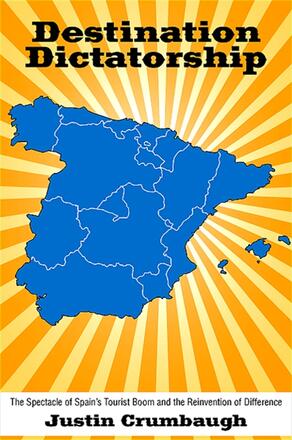
Destination Dictatorship
The Spectacle of Spain's Tourist Boom and the Reinvention of Difference
Alternative formats available from:
Examines the relationship of Spain’s 1960s tourist boom to Franco’s right-wing dictatorship.
Description
When the right-wing military dictatorship of Francisco Franco decided in 1959 to devalue the Spanish currency and liberalize the economy, the country's already steadily growing tourist industry suddenly ballooned to astounding proportions. Throughout the 1960s, glossy images of high-rise hotels, crowded beaches, and blondes in bikinis flooded public space in Spain as the Franco regime showcased its success. In Destination Dictatorship, Justin Crumbaugh argues that the spectacle of the tourist boom took on a sociopolitical life of its own, allowing the Franco regime to change in radical and profound ways, to symbolize those changes in a self-serving way, and to mobilize new reactionary social logics that might square with the structural and cultural transformations that came with economic liberalization. Crumbaugh's illuminating analysis of the representation of tourism in Spanish commercial cinema, newsreels, political essays, and other cultural products overturns dominant assumptions about both the local impact of tourism development and the Franco regime's final years.
Justin Crumbaugh is Assistant Professor of Spanish at Mount Holyoke College.